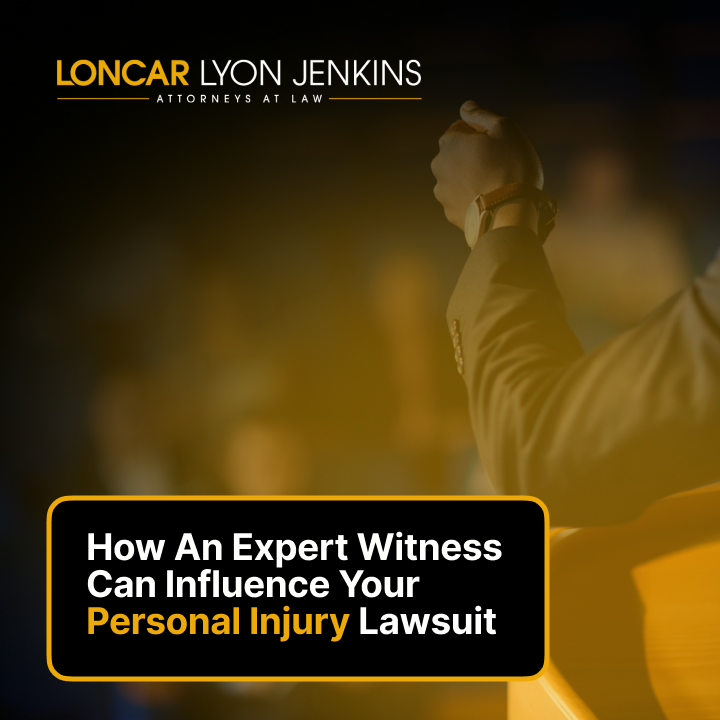When you’re involved in a personal injury lawsuit, understanding the ins and outs can be as tricky as walking a tightrope. But here’s a secret weapon that might just tip the scales in your favor: an expert witness. These aren’t your everyday witnesses; they’re experts of their fields, brought in to shed light on intricate matters that go way over most of our heads.
From dissecting medical injuries to crunching numbers on future financial losses, these pros have the know-how to make complex concepts crystal clear for the court. So, why does this matter for your lawsuit? Well, their insights can not only boost your case’s credibility but also help pin down the true extent of your damages, potentially leading to a fairer settlement.
What is an Expert Witness?
An expert witness is a specialized professional engaged in legal proceedings to provide testimony on matters within their field of expertise. Their primary role is to clarify complex technical or professional issues, aiding judges or juries in making informed decisions. Unlike fact witnesses, who testify about firsthand experiences, expert witnesses leverage their knowledge, skills, and experience to offer opinions and insights beyond common understanding.
The selection of an expert witness is crucial, as their credibility and the pertinence of their expertise to the case can significantly influence the outcome. They are often distinguished by their deep understanding of their domain, coupled with the ability to distill complex information into understandable terms. This capability renders them indispensable in cases where the subject matter is beyond the ordinary knowledge of the court.
How Can an Expert Witness Impact a Lawsuit?
An expert witness can profoundly impact a lawsuit by providing specialized knowledge that clarifies complex issues for the court. Their testimony can enhance the credibility of a case, making it more persuasive to a judge or jury. By accurately determining the extent of damages, expert witnesses offer a detailed assessment that can influence the compensation claims valuation.
Relevant Expert Witnesses in Personal Injury Lawsuits
In personal injury lawsuits, the engagement of relevant expert witnesses is crucial for shedding light on complex aspects of the case and enhancing its credibility. Common types of expert witnesses include:
- Medical Experts: Provide insights on the severity, necessary treatments, and long-term implications of injuries.
- Accident Reconstruction Experts: Analyze accident mechanics to establish fault and causation.
- Economic Experts: Evaluate financial losses, including medical expenses and lost wages.
Medical Experts for Injury Assessment
Medical experts are crucial in personal injury lawsuits, offering an in-depth assessment of injuries. They provide expert insights on the severity, necessary treatments, and long-term implications of injuries, which are fundamental in illustrating the impact on the plaintiff’s life.
Accident Reconstruction Experts for Cause Analysis
Accident reconstruction experts utilize their expertise in physics and engineering to dissect and understand the mechanics behind an accident, shedding light on liability and causation. Their ability to reconstruct the event sequence provides critical evidence that supports legal arguments about who or what was at fault.
Economic Experts for Financial Loss Evaluation
Economic experts are instrumental in calculating the financial repercussions of an injury. Their analysis encompasses immediate and future financial losses, ensuring that compensation claims comprehensively cover the economic impact of the injuries.
When to Consider Hiring an Expert Witness
Hiring an expert witness is crucial when a case involves problems that demand specialized knowledge for explanation. Complex cases with technical, medical, or financial details often necessitate an expert’s testimony to clarify issues and strengthen the evidence.
Challenges of Using an Expert Witness
Engaging an expert witness introduces challenges such as:
- Finding the right expert: Selecting a professional with the necessary expertise and credibility.
- High costs: Expert fees can accumulate quickly, including preparation, analysis, and testimony.
Integrating Expert Witness Testimony into Your Case
Integrating expert witness testimony into a legal case requires a strategic approach. Ensuring alignment with the case’s objectives and preparing the expert for cross-examination are crucial steps. Using visual aids or demonstrations can enhance the presentation’s effectiveness, making complex data more digestible for the court.
Legal Standards for Admitting Expert Testimony
Expert testimony must meet strict legal standards, including:
- Grounded on sufficient facts or data.
- Derived from reliable principles and methods properly applied to the case.
- Provided by a qualified and credible expert.
These standards ensure that only competent and relevant testimony influences the case’s outcome.
Challenging an Expert Witness’s Testimony
Challenging an expert witness involves questioning their qualifications, methodology, or potential biases. Highlighting flaws in their analysis or demonstrating a lack of objectivity can undermine their credibility.
Best Practices for Working with an Expert Witness
To maximize the impact of expert testimony:
- Thoroughly brief the expert on the case details.
- Prepare the expert for cross-examination to safeguard credibility.
- Establish clear communication channels between the expert and the legal team.
The Role of Expert Testimony in Settlement Negotiations
Expert testimony plays a vital role in settlement negotiations by substantiating claims and clarifying damages and liability. Their insights can influence the opposing party’s perception of the case’s strength and likely trial outcome.
We’re on Your Side – Call Now for a 100% Free Consultation!
If you were involved in an accident that was caused by the negligence of another, the legal team at Loncar Lyon Jenkins can help. Our personal injury lawyers have a network of reputable experts they can consult to help build a strong case that proves liability and your demand for compensation. Contact us today to schedule your free, no-obligation consultation to learn more.


